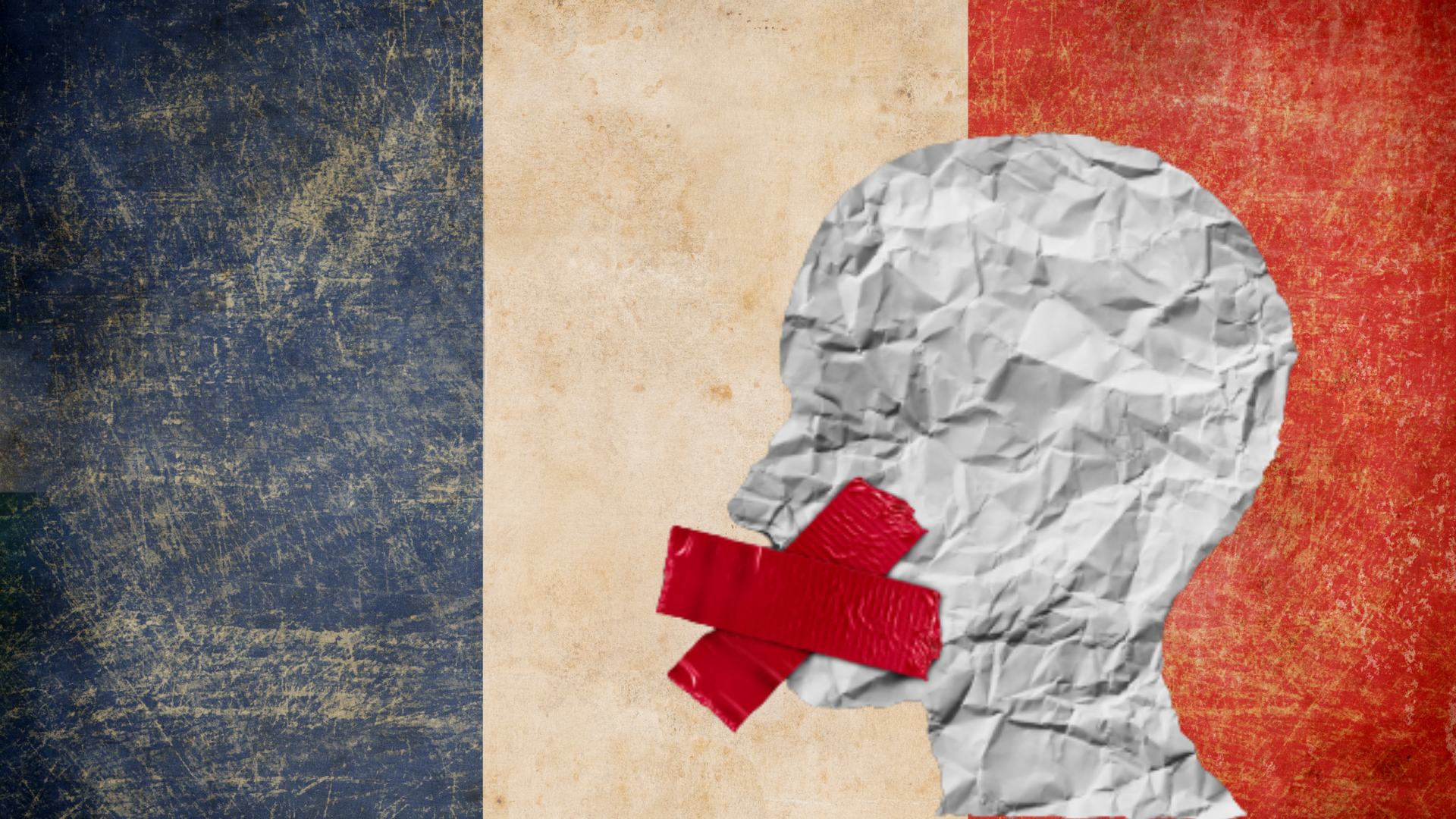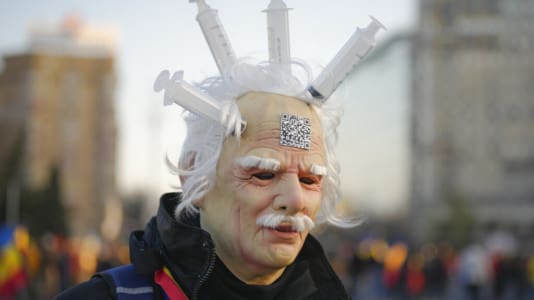In an open letter published on the website of the newspaper Le Figaro, one of the most visited French-language news sites, political science students are speaking out against the growing censorship and the lack of room for free debate in the Instituts d’Études Politiques (IEP), or Institutes of Political Studies, and in French universities.
In France, those Institutes of Political Studies, also commonly called “Sciences Po,” have been particularly affected by the cancel culture and woke wave coming from across the Atlantic. They are schools of higher education where many of the country’s political and media elites, as well as a part of the economic elites, are trained. This makes the presence of a growing woke-style culture within those IEPs particularly concerning for the future of a French democracy, as these students and much of the faculty increasingly take a negative view towards freedom of expression and freedom of association.
However, some students are taking a stand against this trend.
In a letter published on Jan. 4, students from various IEPs across the country voiced concerns about “the official and unofficial censorship that is omnipresent in our schools, on the part of students, associations, professors and the administration,” and they warn “about the dangers of cancel culture” which, “far from being a purely Anglo-American phenomenon confined to the walls of American campuses,” is also spreading in the French academic world thanks to the existence of a large number of minorities in an increasingly fragmented society.
“The objective here is not to pose as victims but to alert our fellow citizens and our leaders to the excesses of the French IEPs, which, let us not forget, are intended to train our future intellectual, political and economic elites,” say the students who signed the open letter, as “the excesses that we are currently observing in the Sciences Po of France will soon extend to the whole of public life. Those who are setting themselves up as apprentice censors will tomorrow be journalists, deputies, writers, ‘intellectuals’, university professors; in short, they will have control over all the structures of power, over minds. ”
This is exactly the kind of problem now facing America, and France — like the rest of Western Europe — seems to be following the model pioneered across the Atlantic, even if resistance to this agenda is still being felt, as this open letter shows.
The letter’s signatories thus warn of what has been happening in France: “The latent political trial that is permanently threatening any student, professor or association that deviates from the tacit progressive line is going to lead to the end of the critical spirit. Numerous publicly known examples demonstrate this: the teachers accused of Islamophobia last year, the physical attacks against associations such as [right-wing] UNI, Le Cercle Mauriac, Le Printemps Républicain or the attempts to ostracize the founders of the associations Génération Z [supporting right-wing conservative presidential candidate Éric Zemmour, ed.] or RN [linked to Le Pen’s National Rally, ed]. It is not only students, professors, or right-wing associations that are targeted, but all those who refuse to bow to the general consensus. Anyone who refuses to submit to the established decolonial, pro-LGBT, and anti-sexist dogmas is insulted and reviled.”
When mentioning university teachers accused of Islamophobia last year, the IEP students are referring to a Feb. 2021 action by a far-left union of the IEP in the city of Grenoble, whose members stuck posters on the walls of their Institute of Political Studies, publicly denouncing the supposed “Islamophobia” and “fascism” of two of their teachers. In France, where there is a strong presence of radical Muslims, such public accusations can put someone’s life at risk. As a result, it is a powerful means of pressuring the entire teaching profession to practice self-censorship. That far-left associations ally themselves with radical Islam is not something new, as French-style Wokism often takes the form of Islamo-leftism and decolonialism.
The fault of the two professors in the eyes of their Islamo-leftist students was to question the very concept of Islamophobia during a day of debate entitled “Racism, anti-Semitism, and Islamophobia.”
Seventeen students were implicated in putting up posters accusing the two teachers of fascism and Islamophobia, and 16 of them were cleared of all charges at the beginning of December by the Grenoble IEP’s disciplinary council, while the seventeenth received a suspended sanction, i.e. a sanction which will probably never be applied.
This is despite a report by the General Inspectorate of National Education, where it is noted that the members of the Union Syndicale (US) behind the posters were creating a “climate of fear” within the political science school in Grenoble.
The two teachers accused of being fascist and Islamophobic have said the decision not to sanction any of the 17 students came as a shock to them.
“No one will dare to contradict them anymore,” said Klaus Kinzler, the German language teacher who is one of the two targeted teachers and who is now on sick leave. Thomas Mandroux, president of the U.S. students’ union at the time of the events, “came parading around the Sciences Po premises after his acquittal” and “went to see the professors who support him to congratulate himself,” complained Vincent Tournier, the other professor publicly accused by the far-left students of being an Islamophobe and a fascist. Tournier has said he had not even been heard by the disciplinary committee that cleared the students of all charges.
Photos of the posters were also relayed by the IEP’s Unef section on its Twitter account. The Unef, or French National Union of Students, is the third-largest student union in France. In recent years, it has made a name for itself by promoting “decolonial” ideas and organizing meetings for non-Whites only. Its participation in the campaign of Islamophobia accusations against the two university professors brought it new criticism, but no concrete reaction from the authorities.
In their Jan. 4 open letter, the IEP students also talk of the development in France of a phenomenon well known in American and British universities: “When a speaker deemed dissident is invited to speak within our walls, a myriad of associations rise up and alert the school administration to the imminent ‘danger’ it represents. (…) Our schools’ management, terrified and obsessed with the public image of their respective institutions, often give in, unashamedly displaying their refusal to receive pseudo-fascists in their institutes. (…) IEP administrations refuse to accept individuals who do not share the ‘values’ of the institutes. (…) The associations and students who dare to hold a sovereignist, patriotic, traditionalist discourse, are vilified with messages of insults, threats, and ostracism.”
As a result of this totalitarian atmosphere within the Institutes of Political Studies, self-censorship represents the greatest danger to freedom of expression and academic freedom today: “Each ad hominem attack, each slanderous accusation, beyond the satisfaction they generate in our opponents, are warnings to the student who would dare to express a reservation, a nuance. Our fellow students come to us to give us their encouragement on the substance or the form once we have taken a stand and been spat on. Many would like to support us publicly, but cannot, because one should not dialogue with “racists, sexists, transphobes, LGBT-phobes, Islamophobes, homophobes, and xenophobes. Those defamatory terms are often summarized under the label of ‘fascist.’ (…) The predominant place taken by feminist and LGBT associations in the last few years in the IEPs has created a climate of general surveillance that pushes any individual who disagrees with their extremist views to remain silent so as not to be labeled as macho or homophobic.”
In conclusion, the IEP students who signed the open letter ask the French government “to take strong measures to allow our IEPs and the entire university world to once again become spaces for debate and intellectual stimulation that they once were.”






